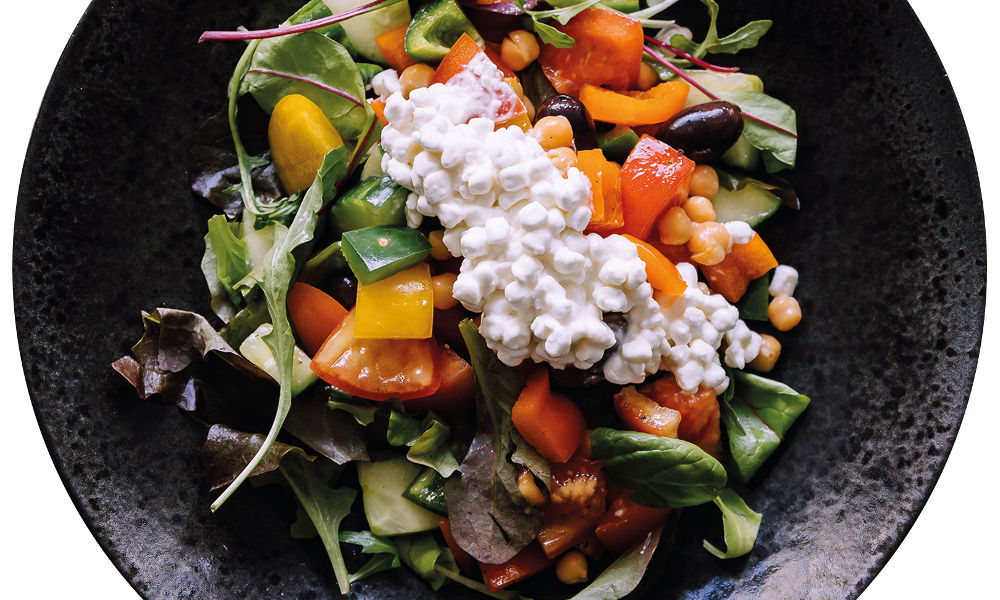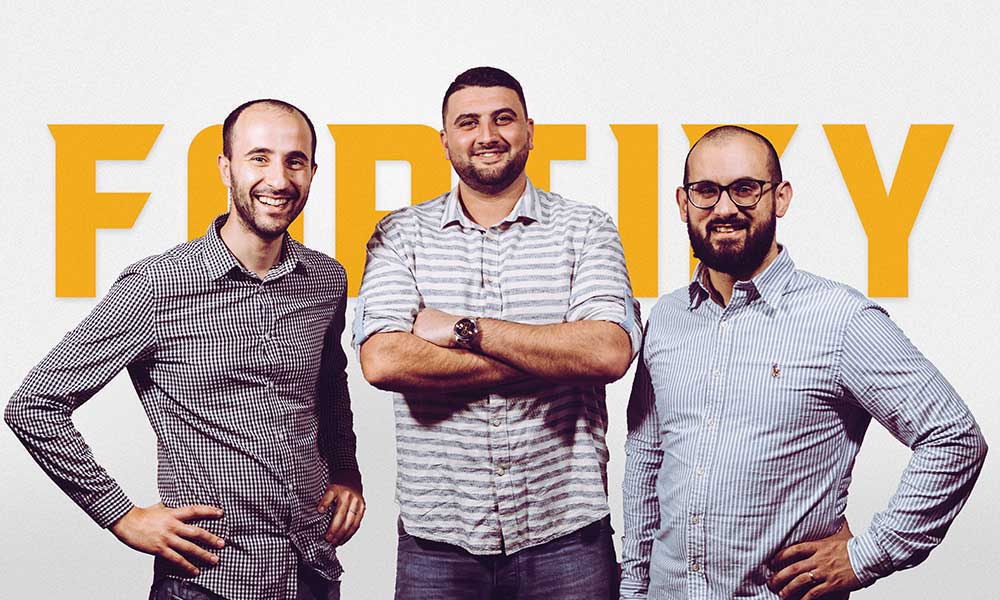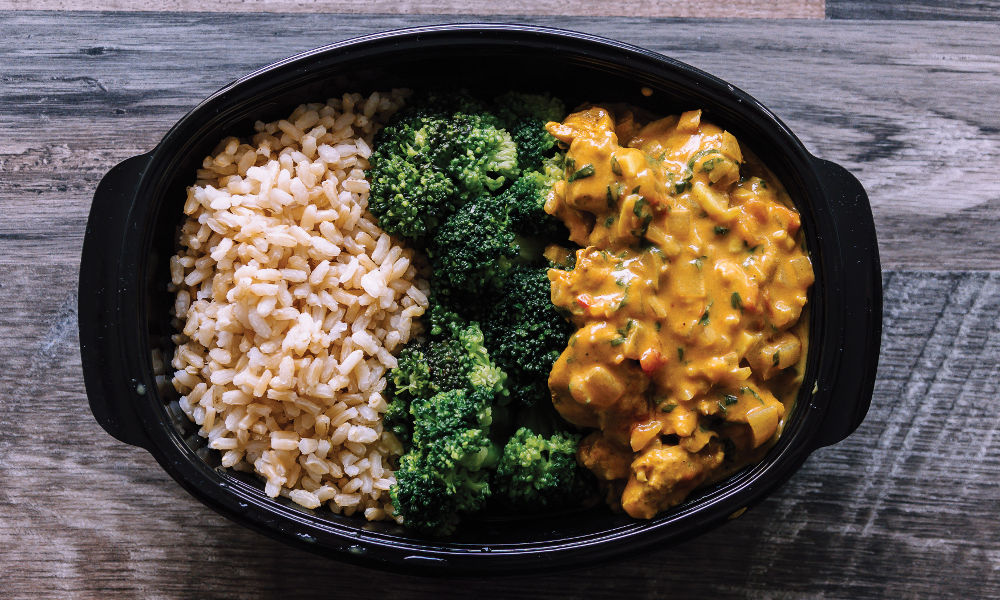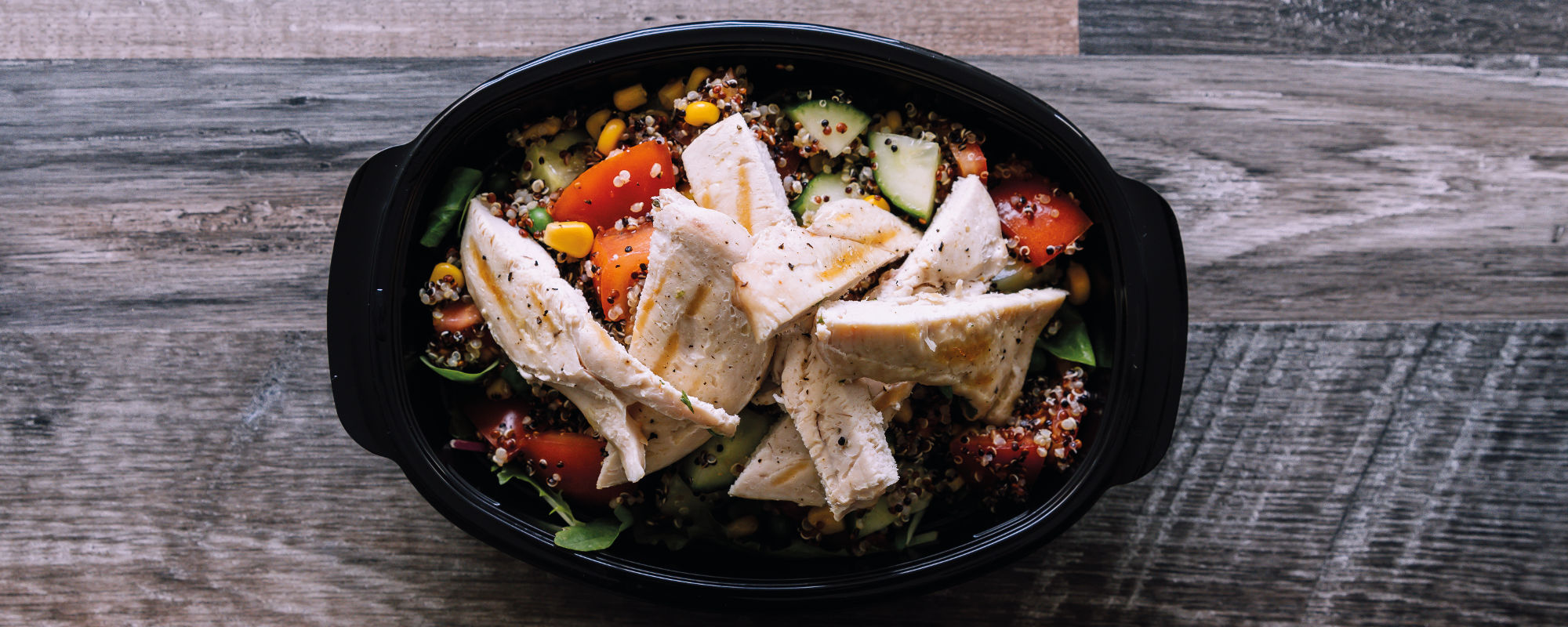It is challenging enough to keep a workout routine, let alone cook nutritious, varied meals at the same time. What if sporty people could have unique meals delivered to their door? Marija Camilleri meets a team that fills this business niche and fitness enthusiasts’ stomachs.
You are what you eat, that’s conventional wisdom. But many of us lack the expertise and time to purchase, prepare, and cook healthy meals. Usually we end up cooking the same things every day without trying to be creative. Mark Cassar, a body-building and fitness enthusiast, understood this frustration all too well, and so together with his long-time friend, Aaron Buhagiar, they decided to create Fortify, a meal-prepping service.
Restaurants and food trucks might be on every corner, yet foodies following particular diets still face a challenge to find somewhere to eat. Cassar and Buhagiar discovered this market niche. ‘We realised that there is a great demand for this business model, and we know through research that gym-goers and body-builders are willing to invest in our product,’ says Cassar.

Cassar and Buhagiar have known each other for over 20 years and have invested in property together. Creating a joint business felt like a natural next step, and the two would regularly discuss ideas. These were usually in the food industry, their shared passion. Buhagiar took this one step further and enrolled in a Masters in Entrepreneurship at the University of Malta, which gave him the means to further develop their idea, create a business plan, and make it happen.
‘When starting up [the business], Mark’s background in body-building helped us a great deal. Not to mention that we were able to use his connections in the bodybuilding industry,’ says Buhagiar. ‘We partnered with the Malta Federation of Bodybuilding and Fitness for their IFBB competition and started our market research from there,’ he adds. They sponsored the competition and managed to attract many foreign and local clients from the event. The two later went on to provide meals for other bodybuilding competitions in Malta.
‘We initially wanted to target individuals who are into fitness. However, as time went by we realised that more people could benefit from such a product. These include people who have no time to cook, or live by themselves, or even individuals who want to sustain a healthy lifestyle but don’t necessarily have the means to,’ Buhagiar continues.
Despite business running smoothly, the two friends were still not satisfied. Outsourced food was not living up to their expectations, and they struggled to find subcontractors who understood their vision. The pair started contemplating a partnership with a chef, someone who believed in their product and passionately wanted to create the best version possible. Their thoughts floated to an old friend, Mauro Leonardi, who was in his final year of obtaining a Master Chef Diploma. ‘Mauro and I have known each other since secondary school, and when Aaron and I were discussing this issue, he immediately came to mind,’ says Cassar.
‘At first I was intrigued but slightly sceptical. We met up multiple times to discuss [the idea], and I came to the conclusion that there is a market for such a product, so I decided to go for it. It’s different from my previous experience in catering, and the new challenge excited me,’ recalls Leonardi. As the experienced chef joined the team, it became clear that they needed a bigger kitchen, as many of their clients would order up to five meals a day. Also, they couldn’t meet their clients’ expectations and would occasionally have to refuse orders when they exceeded their capacity.

‘We decided to pause our marketing efforts for some time. We are here for the long haul and want to fully invest in our product to create a sustainable business model,’ comments Buhagiar. Together, they started looking at different kitchens to invest in. In December 2019, they finally came across a kitchen in Mosta that met all their requirements. ‘The property needed a lot of investment, as it had been closed for the past seven years and contained no equipment. But it is perfect in size, and it gives us the flexibility we need. We now have the capacity to produce 800–1,000 meals a day,’ says Cassar.
Alongside the Fortify business, the team members have kept full-time jobs. Leonardi and Buhagiar both work with different gaming companies, the first as a chef and the second as a data analyst. As for Cassar, he continues working with financial control and business development in the manufacturing industry. ‘Currently our days are full from 6 am to 10 pm, as we still deliver the meals ourselves for now, sometimes before or after work. At the same time, we are busy renovating our new kitchen,’ they add.
We initially wanted to target individuals who are into fitness. However, as time went by we realised that more people could benefit from such a product.
When Cassar and Buhagiar first started dreaming about venturing into the food industry, they approached the TAKEOFF incubator housed at the University of Malta to become members, as they had both become new fathers shortly before, and needed a quiet place to develop their idea. ‘We enjoyed working with Ing. Joseph Bartolo, Prof. Russell Smith, and Prof. Juanito Camilleri. We would have regular meetings with Joe [Bartolo] where he would mentor us,’ comments Buhagiar.
They are also eyeing the incubator’s seed fund, although the product was still in its infancy the first time they applied. After a year of testing out their prototype, they plan to reapply with a more solid and precise business plan.

In the meantime, the Fortify team developed a new product and a fully functional website. The latter will allow clients to customise their weekly meal plan, book their meals up to a week in advance, and get them delivered to their address at a selected time of day, morning or evening. ‘We look forward to being more flexible in the future, but the service will be slightly rigid for now as we are adamant on offering the best service to all our clients,’ Buhagiar adds.
Each meal contains a good balance of protein, carbs, and veg, and will be tailored to exercise regime goals. The client will have the option to customise meals to lose fat or build muscle, for example. ‘We will also be offering a completely new customisable service, where the client can provide us with their personalised nutritional plan from a nutritionist, and we will then cater to it,’ says Buhagiar. The client will upload the meal plan and the team promises to cover everything in the plan, even snacks like yoghurt or nuts. ‘In the future, we would also like to start producing our own protein bars and desserts that can be added to the order,’ adds Leonardi.
The Fortify team are aware that their consumers tend to be environmentally conscious, and are looking into switching their microwavable containers to biodegradable packaging. They also want to offer reusable containers to return clients to cut down on waste.
We are here for the long haul and want to fully invest in our product to create a sustainable business model.
Knowing their clients well is essential. ‘In the past year, we have focused a lot on developing a relationship with existing clients. We have received a lot of feedback. When delivering meals before and after work last year, we would sometimes spend up to 30 minutes speaking to each client. It was time well invested, and we are very grateful that we started at such a slow pace as we learned a lot from them, not to mention we managed to build an element of trust,’ says Buhagiar.
It doesn’t end there for Fortify, Buhagiar says. ‘We believe that the meals are just the beginning. In the future, we would like to tap into the educational side of nutrition and fitness, as it’s an essential aspect of one’s life, and we believe that we can help many individuals achieve their fitness goals.’
This article was written in collaboration with Business Malta.





Comments are closed for this article!